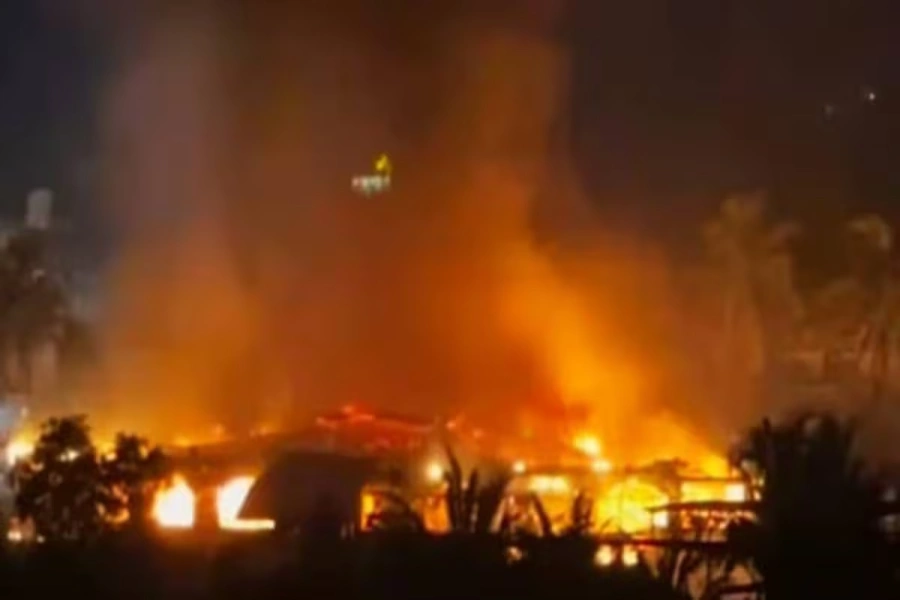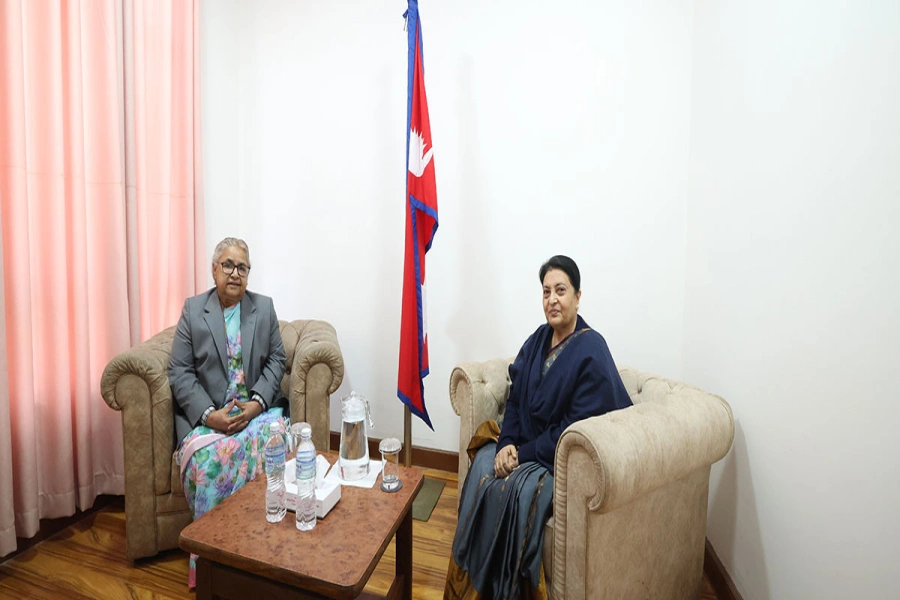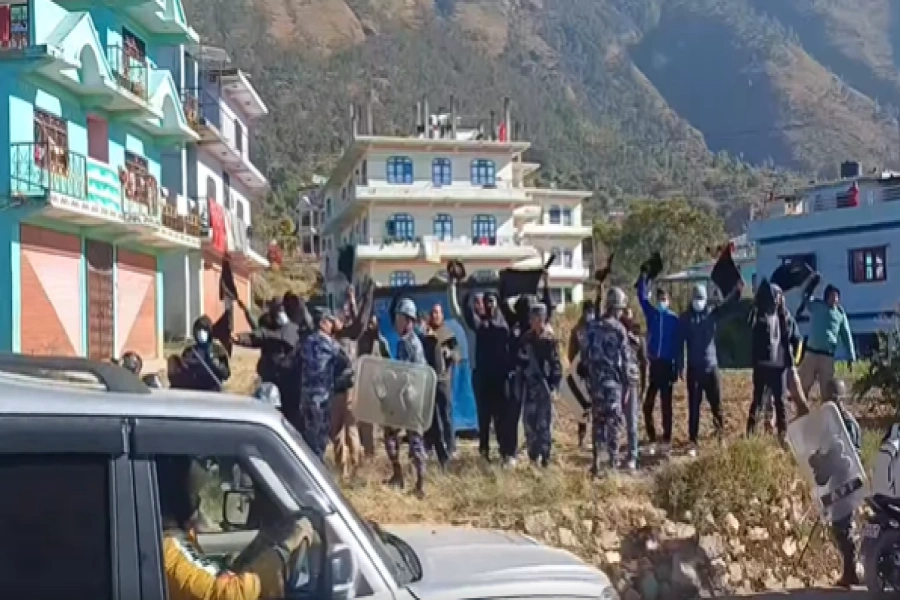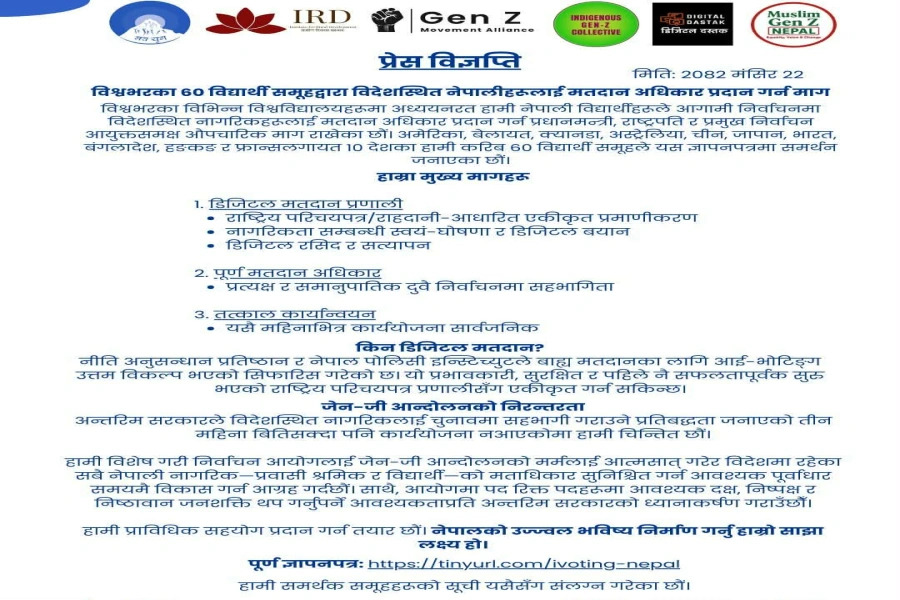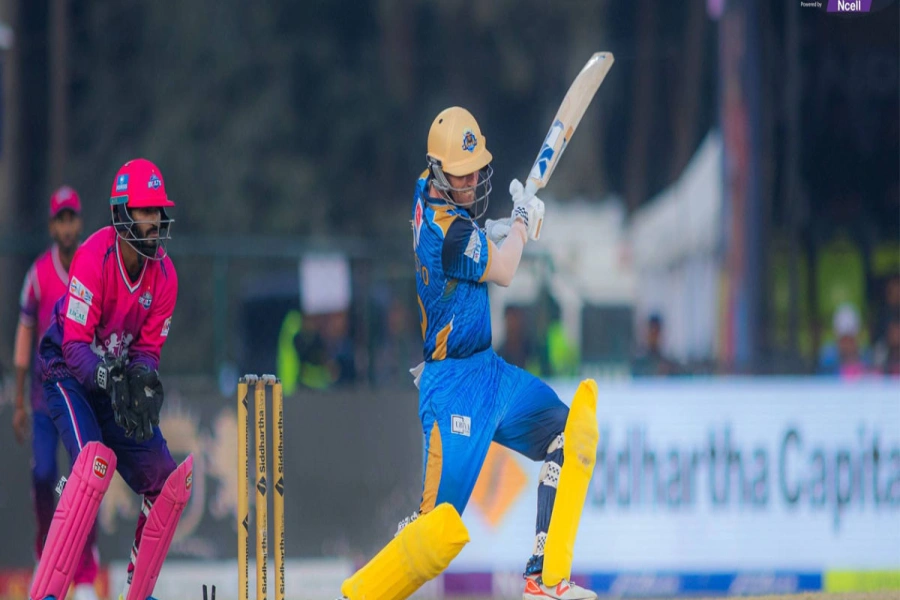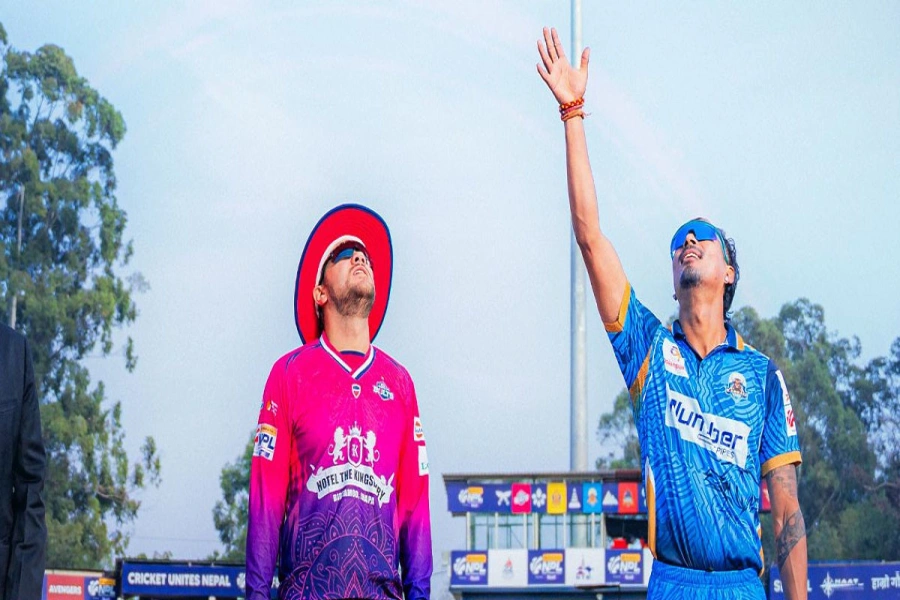Politics has historically been a male-dominated space. Men hold the majority of power in the political sphere globally due to entrenched patriarchal norms that prioritize male leadership and decision-making. Historical traditions and cultural beliefs often position men as natural leaders. Institutional structures and political systems have been designed and perpetuated by men. This systemic male dominance is maintained through the ongoing support and reinforcement of these established norms and structures.
In Nepal, however, the past few decades have seen a gradual shift towards greater gender inclusivity. In 2007, Nepal made significant strides by adopting an interim constitution that mandated a minimum of one-third representation of women in all state mechanisms. This provision was further strengthened in the 2015 Constitution, reiterating the commitment to ensuring women's participation in political decision-making processes.
The increased presence of women in political roles can be largely attributed to legal obligations. Article 38 of Nepal's Constitution of 2015 guarantees women’s fundamental rights, including special provisions for education, healthcare, employment, and social security, through positive discrimination. Article 84(8) mandates that one-third of all members elected to the Federal parliament from each political party must be women.
Similarly, the Local Level Elections Act of 2017 requires parties to field at least one female candidate for both chief and deputy chief positions in any municipality. Additionally, there are further stipulations for the representation of women and disadvantaged communities in local committees.
Despite these measures and progressive legislation, entrenched patriarchy and gender bias continue to affect party decisions. Women are often relegated to deputy or non-executive roles, with only a small percentage nominated for executive positions in local elections. Many female politicians feel marginalized within the political sphere, facing discrimination and a lack of empowerment.
Celebrating the inspiring stories of women’s courage, resilienc...

Moreover, the focus on numerical representation has led to complacency regarding actual gender equality. Some view the presence of women as merely fulfilling quotas, rather than empowering them effectively. This has also caused negative reactions from conservatives who feel their opportunities are being threatened.
Furthermore, despite constitutional guarantees, discriminatory laws and structural obstacles persist. Electoral alliances, such as the ruling coalition in Nepal, sometimes circumvent gender representation requirements, undermining the spirit of the law.
The Numbers Speak
Despite the constitutional provision for proportional representation, the number of female leaders elected in the 2022 local elections in Nepal is disappointing. The Election Commission reported that only 14,466 (39.39%) of the representatives elected were women, including ward-level members. This number is inflated due to the mandatory rule requiring two female members (one Dalit) in each ward. Additionally, political parties running for chairman and vice chairman of rural municipalities, as well as head and deputy head of municipalities, must nominate a female candidate for one of the two positions. However, women still have a low probability of being elected through open seats. In the local elections, only 25 women out of 753 local levels were elected as leaders. In 2022, only 226 women were elected as deputy mayors, compared to 276 in 2017. Similarly, in rural municipalities, the number of women elected as vice chairs decreased from 424 in 2017 to 335 in 2022.
Women's representation in Nepali politics continues to lag behind. Despite legal mandates for gender equality in public affairs, there remains reluctance to entrust significant responsibilities to women. At every level, women's presence in politics seems more a result of legal obligations rather than genuine party support.
Why are women hesitant to join politics?
Running for office requires substantial resources, including money and political influence, amidst an atmosphere of violence and mudslinging. Women are discouraged from entering the fray, and those who do face threats, abuse, and personal attacks, often to a greater degree than men. Structural challenges further hinder women's participation, such as time, commitment of campaigning and the lack of a supportive family network, which many women in Nepal lack.
Political parties often prioritize "winnability," leading to fewer ticket allocations for women. Those who do receive tickets often do so through connections rather than merit, highlighting the limited accessibility for women in politics, despite their proven track record of performance. Studies indicate that women legislators excel in various aspects, including economics, integrity, and leadership, yet societal inequalities persist.
In an ideal scenario, women would receive fair opportunities to run for office and succeed. However, the reality falls short, with few women entering politics, even fewer winning elections, and only a handful reaching top leadership positions.
The Way Forward
When women are represented in political offices, they bring diverse perspectives. Women leaders tend to prioritize issues such as healthcare, education, and social welfare, which directly benefit families and communities. Their involvement ensures that the needs and voices of women and other marginalized groups are heard and addressed, leading to more balanced and equitable governance.
Political parties play a critical role in shaping the political landscape and promoting women's political participation. They have the responsibility to increase the number of women in the political sphere. This would not only increase the number of women in political offices but also ensure that they have a fair chance of being elected. Political parties should provide training and mentorship programs for aspiring female politicians, equipping them with the skills and knowledge needed to succeed in the political arena.
Involving men in the conversation about gender equality in politics will encourage them to support female candidates. Promoting gender sensitivity training for all party members and leaders will foster a culture of inclusion and respect. Media also has a huge role in increasing women’s involvement in politics. Media should positively portray women in leadership roles and highlight their contributions to society. They can provide platforms for women politicians to voice their opinions and share their visions, ensuring their perspectives are widely heard.
Long-term societal change is essential for sustainable gender equality in politics. Civic education programs and community-based initiatives will encourage women’s involvement in local decision-making processes. By addressing these issues and implementing effective strategies, Nepal can make significant progress towards true gender equality in its political landscape.








